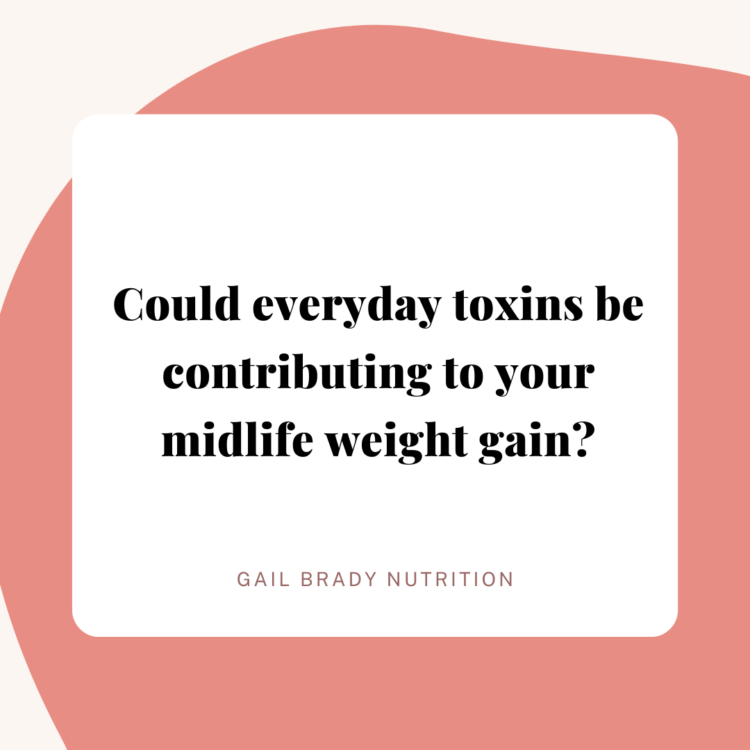//Could everyday toxins be contributing to your midlife weight gain?//
There is no getting away from it, toxins are present in our lives.
They are in the food we eat, the water we drink, the air we breathe, in our cookware, our personal care products and our home cleaning products.
Toxins are in plastic bottles, canned foods, till receipts, air fresheners, fragranced candles and in our furniture, carpets and probably in our gardens too.
In fact, there are many thousands of chemicals, some of which are known to disrupt our hormones. And unfortunately, there is no avoiding them completely.
Toxins come from chemical and plant-derived compounds. Some of these can bind to the oestrogen receptors in the body and exert oestrogen-like effects.
Some may even even modify our DNA sequencing, interfere with our metabolism and contribute to obesity and cancer risk.
Two specific groups of these chemicals are classified as obesogens and xenoestrogens.
Obesogens are toxins which are stored in fat cells, especially around the middle. They can affect insulin signalling pathways and bind to insulin receptors which leads to more stored fat.
Whilst Xenoestrogens imitate oestrogens in your body. This can lead to hormone imbalances in your body and cause oestrogen dominance.
Not only can they disrupt your hormones but they can also:
- Increase inflammation within the body
- Increase the toxic burden on the liver
- Damage your cells
- Affect your energy levels, and
- Lead to weight gain and an inability to lose body fat.
Common obesogens and xenoestrogens include:
BPA – in till receipts, plastic bottles, cling film and canned goods
Phthalates – Perfumes and fragrances, cosmetics and personal care products, air fresheners, scented candles
PFOA – Teflon coated non-stick pans
Heavy metals – aluminium foil, e-cigarettes, mercury amalgams
Pesticides – non-organic fruit and vegetables, garden weed killers
So, what can you do to limit your exposure?
7 ways you can do this
Replace:
- plastic containers with glass
- Aluminium foil with baking paper
- Cling film with silicone or bees wax coverings
- non-stick teflon coated cookware with stainless steel or cast iron
- the dirty dozen fruits and vegetables with organic versions
- tap water with filtered water
- high chemical personal care and cleaning products with low chemical ones – use this app to check their toxin score
For more tips and advice on peri-menopause, join a growing group of like-minded women here
To receive your FREE checklist of the Top 10 Foods to Include in Your Diet During Menopause click here

